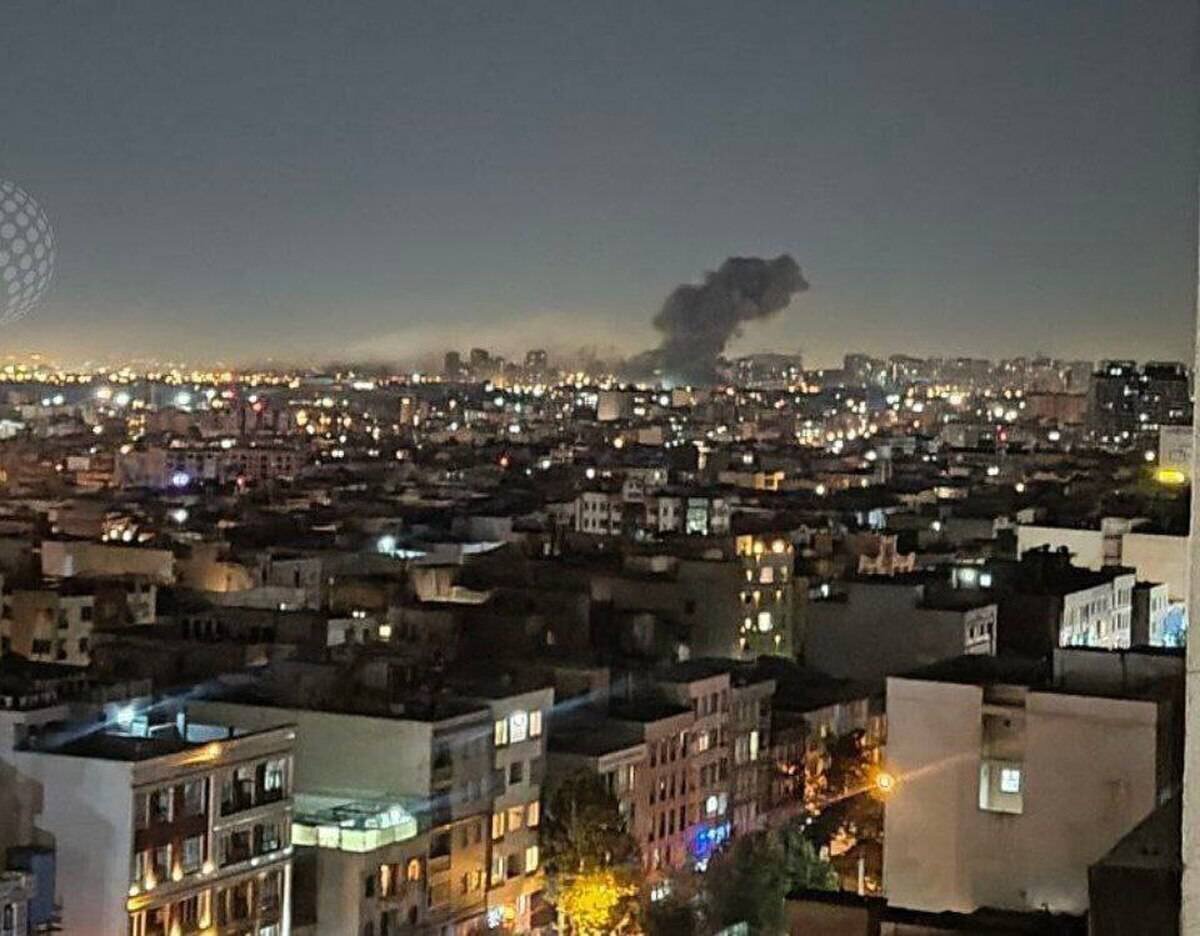Health minister urges UN, WHO to slam, halt Israel’s aggression

TEHRAN – Health Minister Mohammad-Reza Zafarqandi has called on the Secretary General of the United Nations, Antonio Guterres, and the World Health Organization’s director for the Eastern Mediterranean Regional Office, Hanan Hassan Balkhi, to censure Israeli airstrikes on Iran, and take action to stop the aggression.
The majority of martyrs and those injured by attacks of the Zionist regime are civilians. Medical staff are present at the scene with all their might, ISNA quoted Zafarqandi as saying on Tuesday.
“All medical staff, both commissioned and non-commissioned, are present at the scene voluntarily.”
He explained that the majority of martyrs and the injured people are civilians and ordinary citizens. They were at their homes or asleep when the evil regime’s air strikes occurred, he added.
Unfortunately, many women and children are among the injured and martyrs of the Israeli strikes, he mentioned.
Moreover, Alireza Biglari, the deputy health minister for international affairs, in a letter to the United Nations (UN) representatives, warned of the catastrophic human, health, and psychological consequences of the recent military attacks by the Zionist regime on the country and called for immediate action by the international communities.
The letter addressed Monika Oledzka Nielson, the United Nation Children’s Fund (UNICEF) ad interim representative in Iran; Ayna Seyitliyeva, the UN Population Fund (UNFPA) representative; Yumiko Takashima, the representative of the UN High Commissioner for Refugees (UNHCR) in Iran; Ayshanie Medagangoda-Labé, the resident representative ad interim for the UN Development Program (UNDP) in Iran; Jaffar Hussain, the World Health Organization (WHO) representative to Iran, and Niki Tavakoli, the head of the humanitarian advisory team for the United Nations Office for the Coordination of Humanitarian Affairs (OCHA) in Iran.
“In addition toviolating the principles of international humanitarian law and the UN Charter, these attackshave had devastatingimpacts on physical and mental health of civilians, mainly women, and children, as well as civilian infrastructure in the targeted areas,” IRIB quoted Biglari as saying.
Military attacks have led to the destruction or serious damage to infrastructure such as drinking water and environmental sanitation networks, power plants, communication systems, roads, and relief routes, which directly and indirectly threaten the lives of people, particularlyin rural and underprivileged areas.
Damage to nuclear facilities could lead to radioactive materials’ leakage, which can contaminate water, soil, and air resources, endangering the health of millions of people in Iran, the region, and even the globe.
We expect the United Nations’ agencies to:
1. Dispatch teams to assess the humanitarian, health and psychological situation in the affected areas and document their findings.
2. Officially condemn the attacks on civilian infrastructure and the threat to the health and lives of civilians.
3. Establish mechanisms to deliver urgent humanitarian aid, including medicine, medical equipment, and psychosocial support for affected children and women.
4. Mobilize available capacities to prevent the recurrence of such crimes and safeguard civilians’ fundamental rights.
The official went on to remind that silence in face of human rights violation contradicts their missions, and will erode public trust in humanity and justice.
WHO voices concern over long-term war
In a post on X, the head of the World Health Organization (WHO) Tedros Adhanom Ghebreyesus, has underlined the long-term impactsof attacks on Iran’s nuclear sites.
“The escalation of violence between Israel and Iran is extremely concerning — and is costing the lives of civilians, including children. The growing number of injured civilians is also distressing.
WHO’s special concern is the targeting of nuclear sites, which may have immediate and long-term impacts on the environment and health of people in Iran and across the region.
We call on all parties to work towards peace. The most courageous choose peace.”
Israeli War Minister Israel Katz attempted to walk back his earlier remarks on Monday, claiming in an X post that, contrary to his initial Hebrew statements, the regime has no intention of harming Iranian civilians.
Katz’s initial comments, made after Iran’s eighth strike on the occupied territories since the war’s outbreak, declared that the “residents of Tehran” would “pay the price” for the successful offensive. The Hebrew statement, seemingly aimed at Israelis who had been spending hours in bomb shelters, soon circulated on Persian social media. This further undermined Israel’s hopes of inciting coordinated unrest among Iranians, forcing Katz to take to X again, this time to “clarify” his position in English.
“I wish to clarify the obvious: there is no intention to physically harm the residents of Tehran,” he wrote.
That assertion, however, rings hollow against a backdrop of repeated attacks on residential buildings and civilian infrastructure that have left at many Iranian civilians dead since Israel’s unprovoked killing campaign began on Friday.
However, according to spokesperson for the Iranian Ministry of Health, Hossein Kermanpour, the consequences of the “false slogan” claiming that “Israel targets only military sites and has no quarrel with the Iranian people” have proven to be tragically unfounded.
A total of 1,481 individuals have been killed or injured in the Israeli attacks over the past 65 hours. Out of these, 1,277 people have been hospitalized across the country’s university-affiliated medical centers, with over 90% of the victims being civilians, Kermanpour stated.
“So far, 522 individuals have been discharged, while 224 men, women, and children have lost their lives as a result of the attacks,” he added.
The Health Ministry emphasized that the human cost of these strikes clearly contradicts claims of “precision targeting” and underlines the indiscriminate nature of the Israeli aggression.
MT/MG
